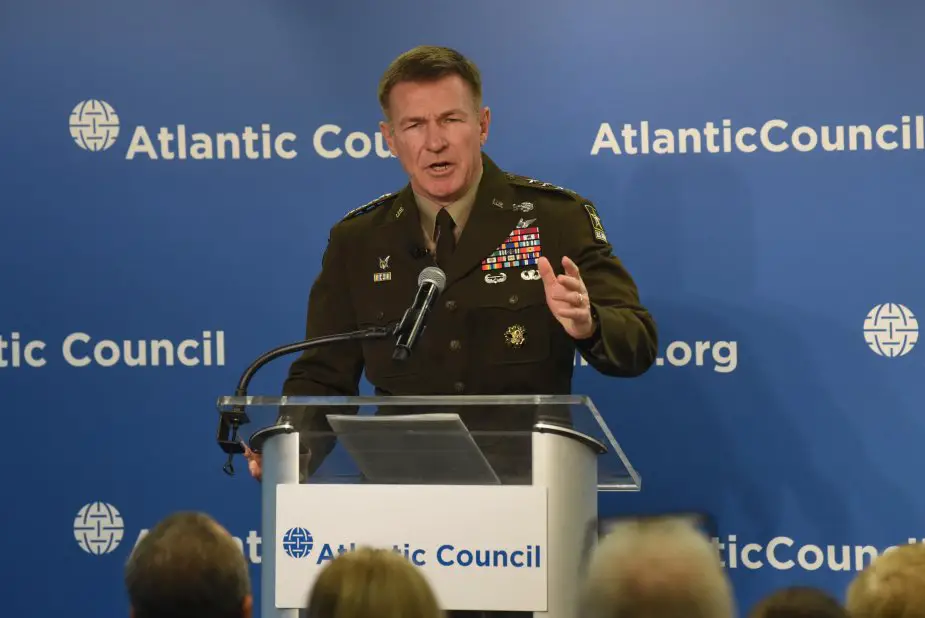U.S. Army Chief of Staff: strength, innovation essential to National Defense Strategy
The National Defense Strategy describes how the Defense Department will be postured to be successful in the great power competition with Russia and China, the Army chief of staff said. In two words, the National Defense Strategy is to be strong and innovative in order to deter conflict or to win if diplomacy and deterrence fail, Army Gen. James C. McConville said. David Vergun, Defense.gov, reports on U.S. Army’s website.

Army Chief of Staff Gen. James C. McConville, speaks about great power competition at the Atlantic Council in Washington, Jan. 14, 2020 (Picture source: U.S. DoD/David Vergun)
McConville spoke about the great power competition on Jan.14 at the Atlantic Council in Washington. Allies and partners, personnel and innovation were the general's discussed themes.
DOD relies heavily on allies and partners, McConville said, noting that he has personally met with 75 chiefs of staff from nations around the world over the course of 2019. There aren't enough U.S. soldiers to be in all places in the world at one time where they're needed, he said. In order to have well-trained partners who can provide their own security, the Army has recently stood up security force assistance brigades, he said. They train and advise partner nations. When they are all stood up there will be five active security force assistance brigades and one in the Army National Guard, he said.
In the area of communications, a future integrated command and control network will not only link sensor to shooters across the DoD, but will also be integrated with systems allies and partners use, he said.
The soldier is the Army's most important and potent weapon, McConville said. Having the right person in the right job is paramount. In order to do this, the Army is finalizing a new personnel system that looks at more than just two variables which the current system uses: rank and job. This new system will consider 25 variables that include a range of knowledge, skills and even soldier preference.
Perhaps the most important and influential persons in the Army are battalion commanders, he said. A good commander not only knows how to command well, but also influences whether or not soldiers reenlist due to the command climate that commander brings. Therefore, the Army has developed a new command assessment program for these commanders to ensure only the best are selected. He said physical fitness, leadership, peer and subordinate reviews are some of the selected variables. Also, noncommissioned officers are no longer selected based solely on time in grade. Now, only the most qualified get promoted, he said.
Innovation will require a lot of experimentation and testing of leap-ahead technology systems, McConville said.
Among two of the Army's priorities are long-range precision fires, and air and missile defense, he said. A near-peer competitor like Russia or China could make it difficult to enter an area through their advanced standoff weaponry, he said. In order to overcome that obstacle, the Army is experimenting with advanced weapons that use directed energy and microwaves. In two to three years, McConville expects the Army to begin fielding new precision strike missiles and extended-range cannons.
Another way to penetrate an enemy's defenses, he said, is with aircraft that have much greater range and speed than the current fleet. Some of those aircraft could even be unmanned, he said. Unmanned ground vehicles are also being developed. It would make sense to have them take the lead in areas that are heavily mined or full of improvised explosive devices. Also, future tanks might just have one person in the vehicle instead of four. Artificial intelligence and robotics could take the place of some of the crew.


























